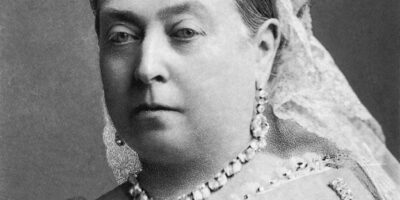
Sen. Joseph McCarthy chats with his attorney Roy Cohn during Senate Subcommittee hearings on the McCarthy-Army dispute-Wikipedia
Top 10 Remarquable Facts about U.S. Army–McCarthy Hearings (1954)
The U.S. Army–McCarthy hearings were a series of televised hearings held by the United States Senate’s Subcommittee on Investigations (April–June 1954) to investigate conflicting accusations between the United States Army and U.S. Senator Joseph McCarthy. The Army accused McCarthy and his chief counsel Roy Cohn of pressuring the Army to give preferential treatment to G. David Schine, a former McCarthy aide, and friend of Cohn’s. McCarthy counter-charged that this accusation was made in bad faith and retaliation for his recent aggressive investigations of suspected communists and security risks in the Army.
Here are the top 10 remarkable facts about the U.S. Army-McCarthy hearing in 1954
1. Republican Senator Karl Mundt of South Dakota chaired the committee during the hearing
In 1954, Karl chaired the Subcommittee on Investigations for the Army-McCarthy hearings, remaining loyal to Senator Joseph McCarthy. Mundt gained prominence with two major investigations into bribery allegations against officials at the Agriculture Department and the Pentagon. Mundt also became one of the leading conservationists in the Senate, which earned him an award from The World Wildlife Fund in 1969. He was known as a fierce opponent of communism. As a member—and eventually a ranking member of the Committee on Government Operations and its Permanent Subcommittee on Investigations, Mundt worked to expose communists in the government.
2. The hearings were covered live by the ABC and Dumont
The media coverage, particularly television, greatly contributed to McCarthy’s decline in popularity and his eventual censure by the Senate the following December. More than eighty million people at least watched parts of the hearings, thus making it one of the major American television events of the 1950s. The televised hearings lasted for 36 days and an estimated 80 million people saw at least part of the hearings.
3. McCarthy hearings were the main catalyst in McCarthy’s downfall from political power

Sen. Joseph McCarthy chats with his attorney Roy Cohn during Senate Subcommittee hearings on the McCarthy-Army dispute-Wikipedia
Daily newspaper summaries were increasingly unfavorable toward McCarthy, while television audiences witnessed firsthand the unethical tactics of the junior Senator from Wisconsin. On December 2, 1954, the Senate voted 67–22 to censure McCarthy, thus effectively eradicating his influence, though not expelling him from office. McCarthy continued to chair the Subcommittee on Investigations until January 3, 1955, the day the 84th United States Congress was inaugurated; Senator John L. McClellan (D-Arkansas) replaced McCarthy as chairman.
4. There were homosexual accusations during the hearing
It was unclear if Schine ever had a romantic or sexual relationship with Cohn, who was a closeted homosexual. (Three years after the hearings, Schine married and eventually had six children.) Some have also suggested that McCarthy may have been homosexual, and was even possibly involved with Schine or Cohn. These accusations were leveled by both sides against each other, but later on, Roy Cohn came out as a homosexual and died of AIDS in 1986 at the age of fifty-nine.
5. John G. Adams was the Army’s Legal Counsel
John G. Adams, who was an Army veteran of World War II, was the US Army’s counsel in the Army-McCarthy hearing. He worked in Washington, DC for the Defense Department before he became the US Army general counsel in 1953. Later on from 1953 to 1955, he became the chief legal adviser to Army Secretary Robert T. Stevens. In 1983 he published Without Precedent; The Story of the Death of McCarthyism.
6. Joseph Welch acted as chief counsel for the Army

Joseph N. Welch (left) being questioned by Senator Joseph McCarthy (right), June 9, 1954, By United States Senate —Wikipedia
Joseph Nye Welch was an American lawyer and actor who served as the chief counsel for the United States Army while it was under investigation for Communist activities by Senator Joseph McCarthy’s Senate Permanent Subcommittee on Investigations, an investigation known as the Army–McCarthy hearings. His confrontation with McCarthy during the hearings, in which he famously asked McCarthy “At long last, have you left no sense of decency?” is seen as a turning point in the history of McCarthyism.
7.McCarthy claimed that the US Army was full of communists
The Army-McCarthy hearings of April–June 1954 investigated the US Army’s allegations against McCarthy, but during the hearings, McCarthy brazenly claimed that the US Army was full of communists. He is known for alleging that numerous communists and Soviet spies and sympathizers had infiltrated the United States federal government, universities, film industry, and elsewhere. Ultimately, the smear tactics that he used led him to be censured by the U.S. Senate
8. The republicans lost the Congressional majorities
The 1954 United States elections were held on November 2, 1954. This led to the Republicans losing the Congressional majorities they had won in the previous election, due in most part to the backlash from McCarthyism and the numerous controversies it spawned including the Army hearings and the suicide of Democratic Senator Lester C. Hunt. The election took place in the middle of Republican President Dwight D. Eisenhower’s first term. In the election.
9. HUAC served as a blueprint for McCarthy in the Senate Permanent Subcommittee on Investigations.
HUAC’s work served as a blueprint for the tactics employed by U.S. Senator Joseph McCarthy in the early 1950s. McCarthy led an aggressive anticommunist campaign of his own that made him a powerful and feared figure in American politics. His reign of terror came to an end in 1954 when the news media revealed his unethical tactics and he was censured by his colleagues in Congress.
The House Un-American Activities Committee (HUAC), a committee of the U.S. House of Representatives, investigated allegations of communist activity in the U.S. during the early years of the Cold War (1945-91).
10. A letter was written by the Edgar Hoover

J. Edgar Hoover, head of the U.S. Federal Bureau of Investigation, By Marion S. Trikosko -1961. Wikipedia
McCarthy produced a letter that he claimed was written by Edgar Hoover who was then the F.B.I. Which was a warning of communists in the Army signal corps. Even though Edgar never testified, therefore the Attorney General claimed there was no such letter written.
Planning a trip to Paris ? Get ready !
These are Amazon’s best-selling travel products that you may need for coming to Paris.
Bookstore
- The best travel book : Rick Steves – Paris 2023 – Learn more here
- Fodor’s Paris 2024 – Learn more here
Travel Gear
- Venture Pal Lightweight Backpack – Learn more here
- Samsonite Winfield 2 28″ Luggage – Learn more here
- Swig Savvy’s Stainless Steel Insulated Water Bottle – Learn more here
Check Amazon’s best-seller list for the most popular travel accessories. We sometimes read this list just to find out what new travel products people are buying.









